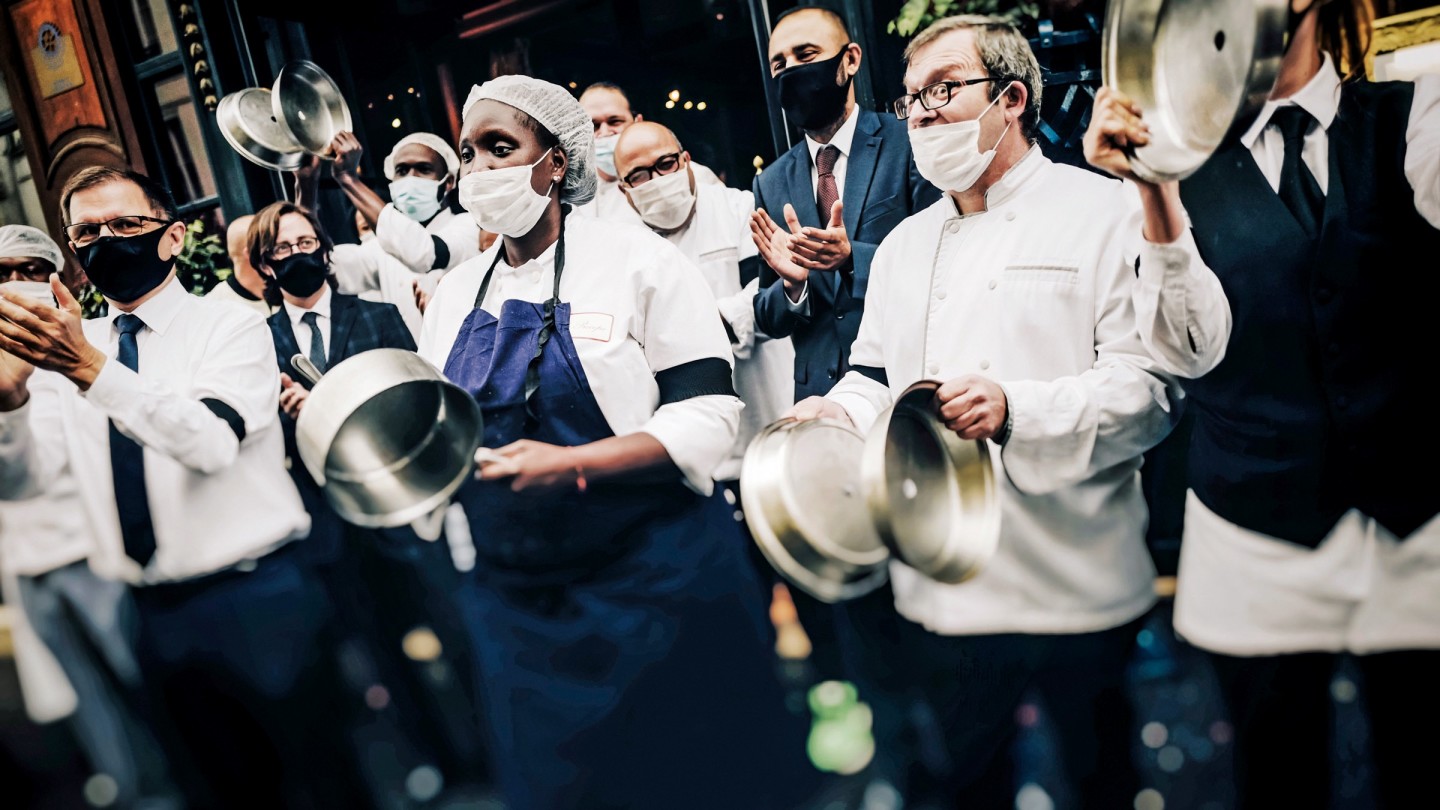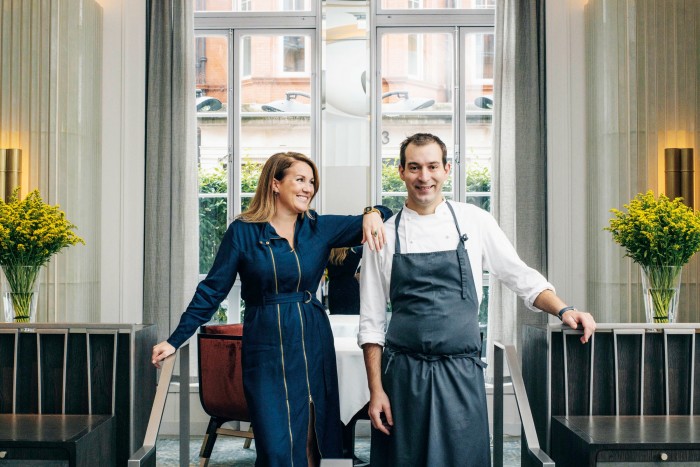How Covid changed the hospitality industry

Roula Khalaf, Editor of the FT, selects her favourite stories in this weekly newsletter.
I’m eavesdropping on the pre-service line-up at Davies and Brook in Claridge’s, a huddle of 20 or so staff led by general manager Anneka Brooks. Usually, line-ups are a chance to catch up on new dishes or prep for VIP guests. This one is a little different. Alongside menu updates and points of service, the team is sharing thoughts and fears and making affirmations in ways you’d expect at group therapy.
First point of order (denoted by “Caught Smashing It” on the agenda) is a round of applause for two servers who performed exceptionally the night before. On the theme of “Friendship At Work”, a waiter talks about how a colleague lent him a philosophy book “about life, love and tackling emotions” and another swapped holidays with him “at a time I really needed it”. “It’s really important to have that connection,” someone else says. “You should be super-proud of yourselves,” concludes Brooks, before everyone whoops and disperses. As Brooks tells me, supporting and uplifting her team is an essential part of her job.
Over the past 18 months, restaurants have been reckoning with how they attract, retain and treat their staff. Labour shortages are rife, particularly in the UK post-Brexit. Morale and welfare have become key concerns. For teams returning from furlough, restaurants have been throwing parties as a means of rebuilding community and letting off steam. Among them was HonestFest, staged in a field in Reading for Honest Burgers’ 600-plus staff: it featured live music, street food, CBD cocktails, dodgems, a dunk tank, a “Total Wipeout” obstacle course, even a tattooist. “I don’t know if anyone got a burger tattoo,” co-founder Philip Eeles reports. “I kind of hope they didn’t.”
Alongside perks such as massages, language classes, gym membership, toiletries and supplier trips, staff are increasingly getting access to therapists and other mental health support as part of a permanent roster of benefits. Cultural shifts are happening with wellbeing in mind too. Hisato Hamada of Wagyumafia in Tokyo has been urging a new openness among his chefs. “In Japanese workplace culture, the concept of muda-banashi [literally translated as “waste talk”] is not encouraged, sometimes even looked down upon,” he says. “But this is not beneficial for modern, young workers, especially during a difficult time like now. We think it is important to have small talk, and to talk about things other than the business.”

In the US, restaurateurs have been grappling with how to overhaul a system that many see as unsustainable. According to Camilla Marcus, former chef/owner of West~bourne in New York and a founding member of the Independent Restaurant Coalition, the triple bind of steep corporate taxes, high leases and razor-thin margins means many restaurateurs can’t afford to expand staff benefits. “Two-thirds of restaurants are independently owned and most are single-unit operators who don’t meet the 50-plus-employee threshold to get more affordable, higher-quality [healthcare] insurance beyond the state minimum,” she points out. Similarly, how do they offer childcare provision when “all professional childcare facilities are open nine to five or 10 to four, usually Monday to Friday, and no restaurant shifts match those hours”? Advocacy groups are looking into whether medium-sized restaurants can band together in consortiums to meet those thresholds or procure tax rebates to cover benefits.
Some positive measures first seen before Covid-19 make even greater sense now. Restaurateurs have been reducing opening hours (sometimes closing two days a week) and overhauling rotas, so staff aren’t overworked and have a better work/life balance. Proper training, even at the “low skill, no skill” end of the business, has become a priority, too. Honest Burgers recently overhauled its programme to give new starters at least two days of front- and back-of-house training.
Angela Hartnett commends figures such as Robin Hutson of The Pig hotels and Will Beckett of Hawksmoor for their staff-centric approach, including “succession planning”, where employees are encouraged to grow within the company. Another industry leader, Shamil Thakrar of Dishoom has staff development at the heart of his business with programmes such as “Pakshala” (food school) for junior chefs and “Babu Masterclass” for training managers (named after a self-effacing Indian term for leader). “It’s an article of faith that if we look after our people, other things like revenue and customer happiness ultimately look after themselves,” he says.
Longer term in the UK, where hospitality can no longer rely on young Europeans with free movement, Tim Siadatan of Padella and Trullo sees the need for a national campaign to sell the industry to the next generation. “Historically, a lot of people have gone into hospitality by default, because they weren’t good at school,” he says. “In countries like Italy, France, Australia, it’s not a tertiary option. It’s taken very seriously. They have quality academies and apprenticeships. We need to change the way we recruit in this country. We need to expose kids to all the wonderful avenues that are possible, from working as a chef to becoming a sommelier, a baker, a cheesemaker. Because hospitality shouldn’t be a plan C. It’s an exciting place to work and a really viable career.”
@ajesh34
Comments